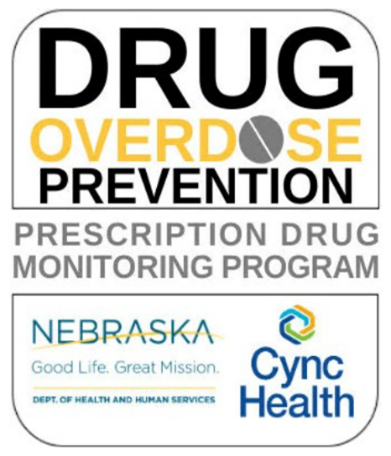Combatting the opioid epidemic has long been an HHS priority, and the department provides resources and technical assistance to states, health care providers, and other interested parties to assist in their efforts to address the crisis. ONC helps address the opioid epidemic through its support for the adoption of health IT and promotion of nationwide health information exchange, including through opportunities created by prescription drug monitoring programs (PDMPs). The significance of this work is evident, as some states and territories have leveraged their PDMPs to help address challenges related to the COVID-19 pandemic through the expansion of system capabilities. Nebraska is one such state, which we spotlight below, that has successfully leveraged its PDMP during the pandemic to address complex problems.
Nebraska an early adopter of PDMPs

Nebraska was the first state to track all dispensed prescription drugs, providing the most comprehensive medication history for the state and supplying providers with a valuable tool to assist them in making better informed decisions for patient care and safety. This complete view of a patient’s prescription history can help to reduce medication errors and enables the state to identify early trends in prescribing for certain diseases.
Nebraska used its existing PDMP infrastructure and expanded its capabilities to collect and report medications beyond the traditional controlled substances that other states report. CyncHealth (Nebraska’s statewide HIE, which provides the HIE platform upon which the PDMP is housed) was able to use the vast data within the Nebraska PDMP to identify patients on prescriptions typically used to treat chronic diseases or medications that could suppress the immune system, all of which could indicate risk factors for COVID-19. This information was provided to the Nebraska Department of Health and Human Services (DHHS).
CyncHealth worked with the Nebraska DHHS to plan a project, using public health data on patients with COVID-19, to search for correlations of concomitant medications that might impact morbidity or mortality rates associated with the illness. Nebraska continues to focus on using its PDMP, as well as CyncHealth, for patient safety and population health projects to understand, and ultimately improve, patient care. Nebraska DHHS and CyncHealth continue to set an example of the great successes that can be achieved through collaboration between the PDMP, HIE, and state public health agency.
ONC Projects Supporting PDMP Use
Several ONC resources and projects are available to support PDMP adoption and use. ONC developed a report—Leveraging PDMPs and Health IT for Addressing Substance Use Disorder and Opioid Use Disorder (LPASO)—to examine ways that PDMP policies and technology can support substance and opioid misuse identification, prevention, and treatment in states and territories. This resource presents information on the status of PDMPs and health IT activities across the country.
Through the LPASO work, ONC supported the development of a toolkit, State Strategies to Improve the Use of Prescription Drug Monitoring Programs to Address Opioid and Other Substance Use Disorders. The toolkit highlights state PDMP policies and identifies opportunities to improve access to and ease of use of PDMP information by health care providers. Both LPASO and the toolkit are valuable resources for states and other stakeholders that are considering strategies for advancing their PDMP policies and technology.






